
Copernical Team
IU physicists lead world's most precise measurement of neutron lifetime
 An international team of physicists led by researchers at Indiana University has announced the world's most precise measurement of the neutron's lifetime.
The scientific purpose of the experiment, which IU has led for over a decade, is to measure how long, on average, a free neutron lives outside the confines of atomic nuclei.
The results from the team, which encompasses scientists f
An international team of physicists led by researchers at Indiana University has announced the world's most precise measurement of the neutron's lifetime.
The scientific purpose of the experiment, which IU has led for over a decade, is to measure how long, on average, a free neutron lives outside the confines of atomic nuclei.
The results from the team, which encompasses scientists f Laser Communications Relay Demonstration gears up for launch
 NASA's Laser Communications Relay Demonstration (LCRD) is gearing up for launch this fall, no earlier than Nov. 22. The payload arrived in Florida in May, fully integrated into its host spacecraft and ready for its final testing before being lofted into space.
LCRD will leverage the power of infrared light to send and receive information encoded into invisible laser beams from one location
NASA's Laser Communications Relay Demonstration (LCRD) is gearing up for launch this fall, no earlier than Nov. 22. The payload arrived in Florida in May, fully integrated into its host spacecraft and ready for its final testing before being lofted into space.
LCRD will leverage the power of infrared light to send and receive information encoded into invisible laser beams from one location Humidity caused corrosion of Starliner capsule valves, Boeing, NASA say
 Humid Florida air may have caused valves to stick in Boeing's Starliner space capsule during preparation for a test launch Aug. 3, causing further delay in NASA's astronaut launch program, the company and NASA announced Tuesday.
The capsule, already four years behind schedule at a development cost of $4.6 billion, may not be launched again until early 2022 as the valve investigation con
Humid Florida air may have caused valves to stick in Boeing's Starliner space capsule during preparation for a test launch Aug. 3, causing further delay in NASA's astronaut launch program, the company and NASA announced Tuesday.
The capsule, already four years behind schedule at a development cost of $4.6 billion, may not be launched again until early 2022 as the valve investigation con Calm above the storm
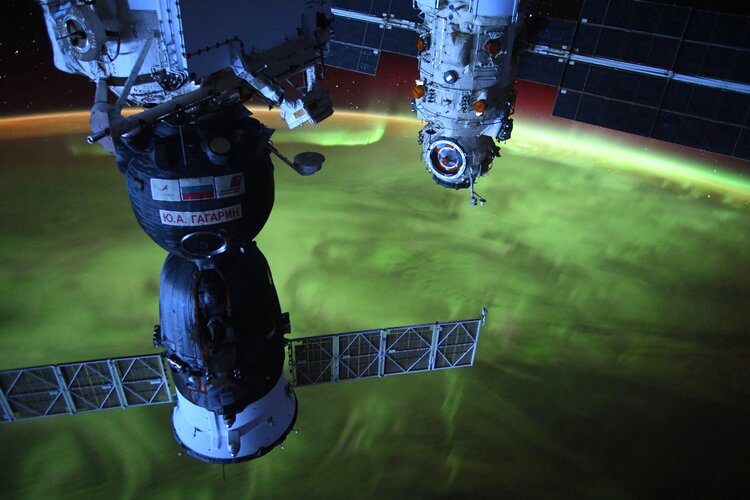 Image:
Image:
Auroras make for great Halloween décor over Earth, though ESA astronaut Thomas Pesquet snapped these green smoky swirls of plasma from the International Space Station in August. Also pictured are the Soyuz MS-18 “Yuri Gagarin” (left) and the new Nauka module (right).
The Station saw quite some aurora activity that month, caused by solar particles colliding with Earth’s atmosphere and producing a stunning light show.
Fast forward to October and space is quite busy.
On 9 October the Sun ejected a violent mass of fast-moving plasma into space that arrived at Earth a few days later. The coronal mass ejection (CME)
Boeing aims for unmanned Starliner test flight in first half of 2022
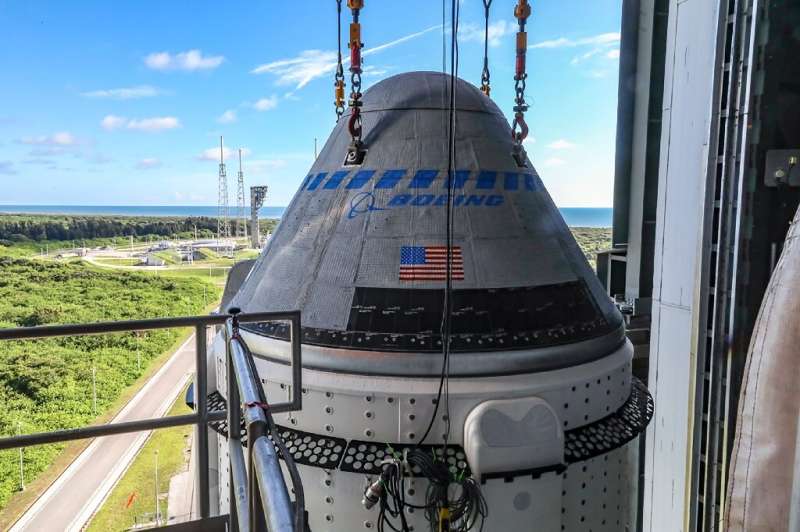
Boeing is aiming for a test flight of its unmanned CST-100 Starliner capsule in the first half of next year and a potential launch of its crewed spacecraft at the end of 2022, company officials said Tuesday.
The CST-100 had been scheduled to fly to the International Space Station (ISS) from Cape Canaveral, Florida, on August 3 but the flight was aborted just hours before launch because of problems with propulsion system valves.
Boeing officials told reporters in a briefing on Tuesday that they were still conducting testing of the valves but they may heve become stuck because of moisture or condensation.
"Normal environment humidity was likely the source of that moisture in the valves," Michelle Parker, Boeing Space and Launch chief engineer, said.
Back to gravity: Russians talk about world's 1st space movie
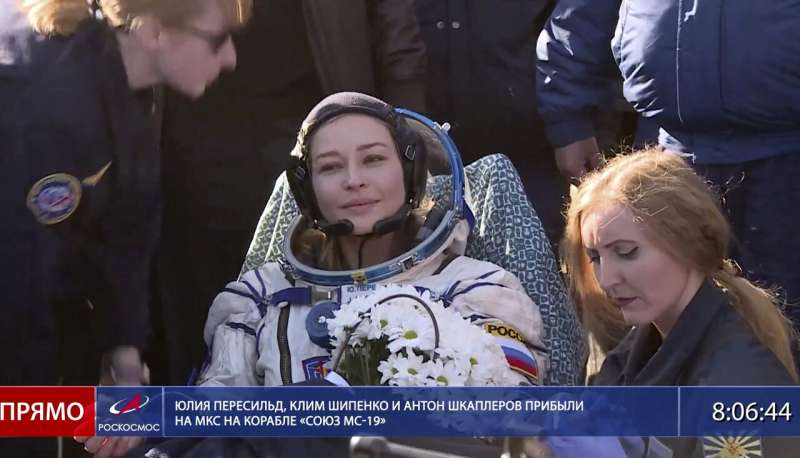
Humans to blame for warming lakes
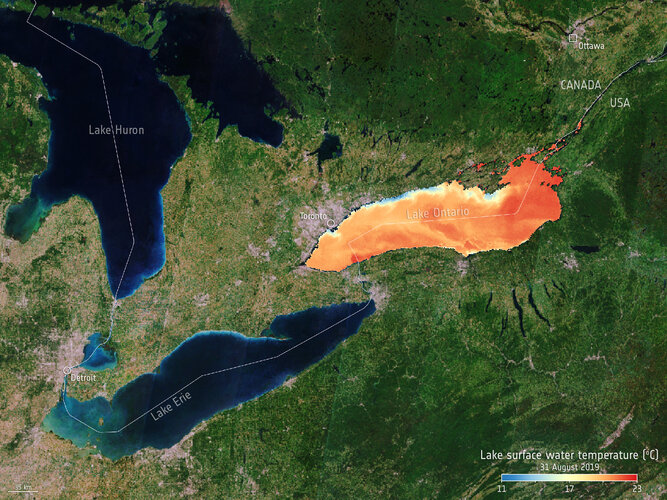
While the climate crisis is, unfortunately, a reality, it is all too easy to assume that every aspect of our changing world is a consequence of climate change. Assumptions play no role in key environmental assessments and mitigation strategies such as we will see in the upcoming UN climate change COP-26 conference – it’s the science and hard facts that are critical. New research published this week is a prime example of facts that matter. Using model projections combined with satellite data from ESA’s Climate Change Initiative, this latest research shows that the global rise in the temperature of
Welcome to the Ariane 6 launch complex
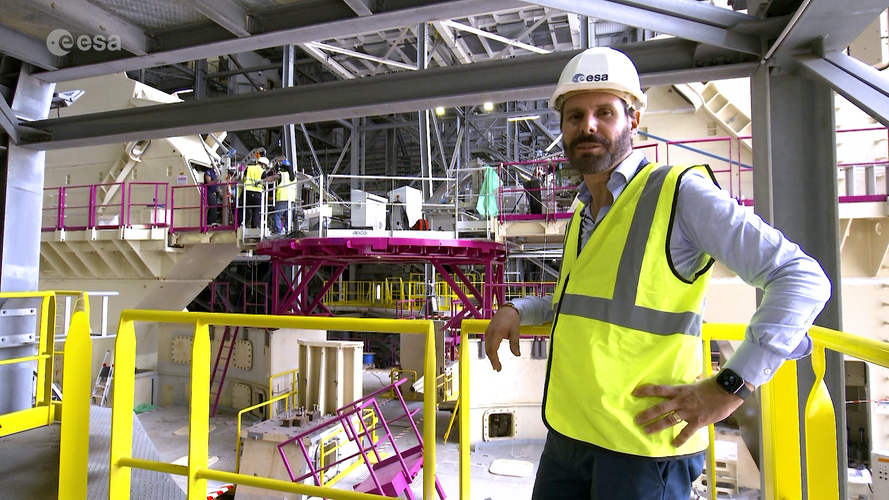 Video:
00:03:03
The Ariane 6 launch complex is a marvel of engineering. Take a tour at Europe’s Spaceport in French Guiana.
Video:
00:03:03
The Ariane 6 launch complex is a marvel of engineering. Take a tour at Europe’s Spaceport in French Guiana. Scientists find evidence the early solar system harbored a gap between its inner and outer regions
 In the early solar system, a "protoplanetary disk" of dust and gas rotated around the sun and eventually coalesced into the planets we know today.
A new analysis of ancient meteorites by scientists at MIT and elsewhere suggests that a mysterious gap existed within this disk around 4.567 billion years ago, near the location where the asteroid belt resides today.
The team's results, ap
In the early solar system, a "protoplanetary disk" of dust and gas rotated around the sun and eventually coalesced into the planets we know today.
A new analysis of ancient meteorites by scientists at MIT and elsewhere suggests that a mysterious gap existed within this disk around 4.567 billion years ago, near the location where the asteroid belt resides today.
The team's results, ap San Andreas Fault-like tectonics discovered on Saturn moon Titan
 Strike-slip faulting, the type of motion common to California's well-known San Andreas Fault, was reported recently to possibly occur on Titan, Saturn's largest moon. New research, led by planetary scientists from the University of Hawai?i at Manoa School of Ocean and Earth Science and Technology (SOEST), suggests this tectonic motion may be active on Titan, deforming the icy surface.
On m
Strike-slip faulting, the type of motion common to California's well-known San Andreas Fault, was reported recently to possibly occur on Titan, Saturn's largest moon. New research, led by planetary scientists from the University of Hawai?i at Manoa School of Ocean and Earth Science and Technology (SOEST), suggests this tectonic motion may be active on Titan, deforming the icy surface.
On m 